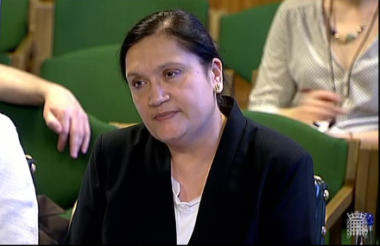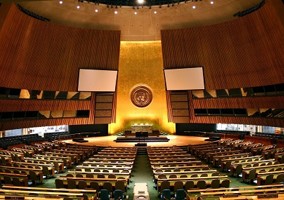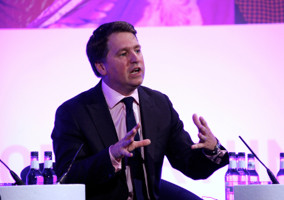Charities have known that they face serious safeguarding issues since 2002 and have been “turning a blind eye” ever since, one of the authors of a UN report into the issue said yesterday.
Asmita Naik, an independent consultant, was one of the authors of a report covered on the front page of The Times yesterday, which said that sexual exploitation of refugees by charity staff was widespread.
Speaking to Civil Society News yesterday, she said that while The Times had accurately said that a full report was not published in 2002, a summary had been released, and had caused widespread discussion in the media.
“This was a very big deal at the time,” she said. “It’s true the full report was not released but a summary was. There was a big global story. It was debated at the UN; there was a UN General Assembly resolution and a system-wide policy put in place by the UN Secretary General. It was the first time sexual exploitation in the aid sector was put on the global agenda.”
Level of change 'lamentable'
She said that a lot of work was done at the time to put systems in place to prevent aid workers from sexually exploiting beneficiaries, but that not all of the changes in policy had been properly implemented on the ground. She said that frontline staff had not been prosecuted, and some agencies did not seem to have reported any incidents.
“The level of change on the ground was lamentable,” she said. “I find that rather alarming that a number of organisations don't seem to have taken proper action at all.”
After the 2002 report, she said, there was little attempt to punish those found to have broken the rules.
“There were no real consequences for wrongdoers,” she said. “No institutional donors withheld funds. No one was prosecuted and a mere handful lost their jobs out of what were some 130 allegations arising from the original report and further UN investigations.”
She indicated that the same situation likely continued at many agencies.
“A lot of high level policy work was done after the report in 2002, but I’m not convinced it’s produced change on the ground,” she said. “I don’t think the policies have been properly implemented. It’s not credible to suggest that there are no cases. In every part of society there are always abuses, so if they aren’t finding any, it can only be because they aren’t paying attention to the issue. It’s because they’re turning a blind eye.”
UN response was weak
She said that agencies’ weak approach was in part due to the approach from some senior staff at the UN.
“I would say charities have known that sexual exploitation and safeguarding have been problems for at least 16 years,” she said. “It is possible that some smaller organisations may not have had the information fed down to them through organisations like Bond, but there’s no excuse for the larger ones.
“It’s not that nothing was done. It had a big impact on the aid community. There were parts of the UN, NGO community and governments that took an interest and pushed forward change. The working groups set up in response still remain today.
“But in some parts of the UN there was a campaign to denigrate the report. That campaign took the wind out of the sails.”
Culture an issue
She said the problem also came down to culture at particular charities.
“Most of the agencies involved haven’t gone far enough in implementing the policies and procedures set up in the wake of the report,” she said. “Part of the problem with that is culture. People know it’s wrong. They go and investigate. But then they take the wrong decisions.
“Even Joe Public understands that if your employees do something like this you can’t let them off, but the top people at the charities have other priorities, whether it’s reputation or funding. Ethical leadership and management responsibility for these issues throughout the management chain is what's needed to effect change.”
And she said that institutional donors also took a share of the blame.
“Funders have culpability in this,” she said. “Why is it that The Times is going back and checking on this, but the government donors have taken their eyes off the ball?”
Related articles












